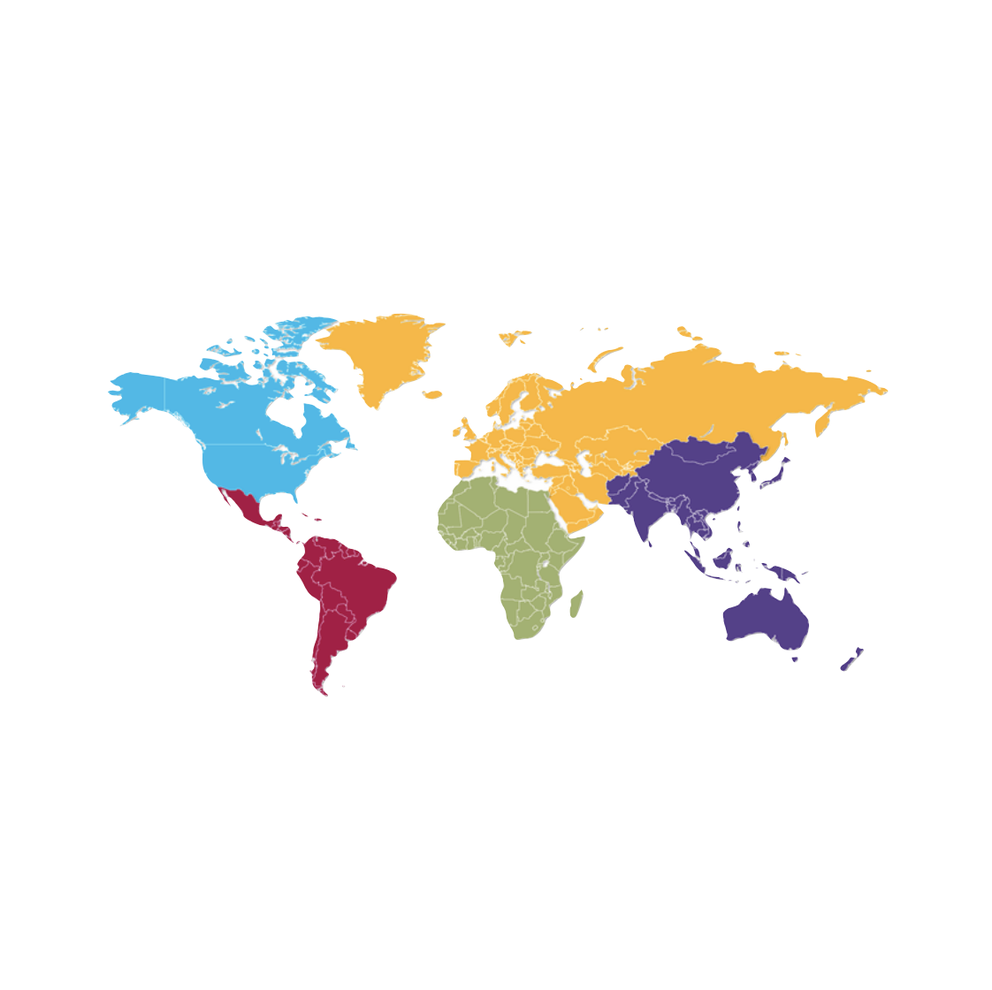AFRINIC has received a lot of attention recently following a dispute with one of its members that has led to several legal actions taking place in the Mauritian courts. In this article, I want to make it clear that the RIPE NCC stands firmly with the decisions made by the AFRINIC community through the open, inclusive, bottom-up policy development process that the Internet Number Registry system has been founded upon. We also express our hope that the African community will continue to give its support to the registry that has managed IP addresses and supported network operations on the continent for the past 16 years.
The situation with AFRINIC revolves around a dispute with one of its members, Cloud Innovation Ltd. In 2020, AFRINIC initiated several audits of its members and determined that Cloud Innovation Ltd. was not using the resources it had been allocated for their original purpose. After seeking clarification from Cloud Innovation Ltd. on the status of these resources, AFRINIC informed Cloud Innovation Ltd. that AFRINIC might proceed with the reclaiming of the resources. Cloud Innovation Ltd. contests AFRINIC’s right to do so, and it brought several litigations against AFRINIC. AFRINIC transparently lists these various litigations on its website, and ARIN has also made a statement on its blog in recent days that provides further background and information.
Why This Matters
The Regional Internet Registries (RIRs) are an important part of the Internet ecosystem. For 30 years, they have ensured the uniqueness of Internet number resources allocated globally. This system has been hugely successful, and it has proven to be robust and resilient regardless of changes surrounding the system.
The key to the success and robustness of the Internet Number Registry system has been its ability to bring together people, organisations and communities to reach consensus on the policies that determine how the Internet works and how resources are managed and allocated. The RIRs provide neutral platforms for their communities to come together to develop policies that will work for the regions that they serve. And just as the RIRs ensure the uniqueness of the addresses they allocate, the overall Internet Number Registry system works to accommodate the unique political, legal, cultural and social realities of the regions it serves. Accommodating this diversity within one global system is a major achievement we should all be proud of, and this system is one we will always defend.
The Limits of RIPE NCC Involvement
In various forums and in correspondence, it has been suggested that the RIPE NCC might play a role in providing a new home for AFRINIC members concerned with developments, or even that the RIPE NCC might take over all or part of the Registry function for AFRINIC. I want to state very clearly that this is not something the RIPE NCC is considering nor something we would support. These suggestions are not only impractical, but they also serve to destabilise the Internet community. The RIRs and their communities should focus on ensuring accurate registration of unique Internet number resources to maintain the smooth running of the Internet.
The RIPE NCC accepts members globally as long as they have a network presence in our service region. There have been suggestions that AFRINIC members could become RIPE NCC members and transfer their resources to our service region. However, this is neither possible nor advisable. There is no corresponding transfer policy that exists between AFRINIC and the RIPE NCC. Should African organisations open member accounts with us, they will be unable to transfer their AFRINIC resources to us. They will be eligible to receive IPv6 address space and Autonomous system numbers from the RIPE NCC and will be added to a waiting list to receive a /24 of IPv4 address space if addresses become available according to the policy.
It has also been suggested that since RIPE NCC operated a registry for part of the AFRINIC region before AFRINIC was established, that the RIPE NCC should take over all or part of the registry function from AFRINIC. I believe it is important to be clear on this matter so there can be no doubt within the RIR communities and especially within AFRINIC’s: The RIPE NCC will not agree to take responsibility for the registration of Internet number resources in the African Internet community.
Firstly, this would dilute the ability of the African community to have control over the policies that determine how African resources will be managed and allocated. The establishment of AFRINIC was the result of a desire in the African Internet community to manage its own resources and be in control of its own policymaking processes. Sixteen years later, I still believe this was the right thing to do, and we would resist attempts to revert to the previous situation.
Secondly, we have an essential duty of care to our own members and community. Diverting a significant part of our focus and resources to fulfil all or part of the African registration needs would heavily impact our ability to carry out our own mandate towards our membership and community. And this just scratches the surface of the complexities involved in such a task.
Support for AFRINIC
This said, we are absolutely committed to supporting the Internet Number Registry system, of which AFRINIC is an integral part. Although we will not become involved in any additional registry activity, we do stand ready to support our colleagues in AFRINIC.
The RIRs have committed to assist each other in-kind and financially if this should be necessary to protect the integrity of any RIR’s Internet registry services. The RIR Joint Stability Fund is the mechanism through which this assistance can be provided should AFRINIC request that it be activated. However, AFRINIC has not yet formally requested that this fund be activated. We are, however, prepared to do so, and at the RIPE NCC Executive Board Meeting on 19 August, the Board unanimously adopted the following resolution:
“The RIPE NCC Executive Board authorises the RIPE NCC Managing Director to review and act on behalf of the RIPE NCC on any request for the activation of the RIR Joint Stability Fund, in case such request is formally submitted by AFRINIC within a three month period from the date of this resolution and according to the process described here: https://www.nro.net/accountability/rir-accountability/joint-rir-stability-fund/. Further, the RIPE NCC Executive Board allows for RIR activities that are related to AFRINIC operations to qualify for support from this Fund, provided that this is formally requested by AFRINIC.”
Finally, the RIRs receive their mandate to operate from their communities. We have been greatly impressed by the strong statements of support AFRINIC has received from its community and from across the wider Internet industry. We have faith in the ability of the African Internet community to resolve this situation without undue damage to the very system that has been so beneficial to the sustainable growth of the Internet as we know it today.





Comments 2
The comments section is closed for articles published more than a year ago. If you'd like to inform us of any issues, please contact us.
Mirjam Kühne •
As already mentioned on the RIPE Mailing List, as Chair of the RIPE community and someone who has been involved in AFRINIC from the start, I fully support this statement. I would like to express my faith in the African Internet community and my special support for the AFRINIC staff. Having a strong and diverse RIR system in place is of utmost importance for the Internet community and the stability and further growth of the Internet.
Daniel Karrenberg •
It is good to hear that the RIRs as institutions organise support for AFRINIC as a fellow institution. My personal thoughts are first and foremost with the AFRINIC staff; they need to pay the bills and sustain their families. I understand that so far AFRINIC has been able to pay salaries. As a community we should stand ready to help the *people* of AFRINIC if that should become necessary. I am aware of a fundraising campaign (https://www.tespok.co.ke/?page_id=14001) and I have personally contributed a small amount. Some AFRICAN friends from the early days suggested that we visibly do something similar as a sister community *if it should become necessary*. Our African friends should know that we stand ready do so if necessary!